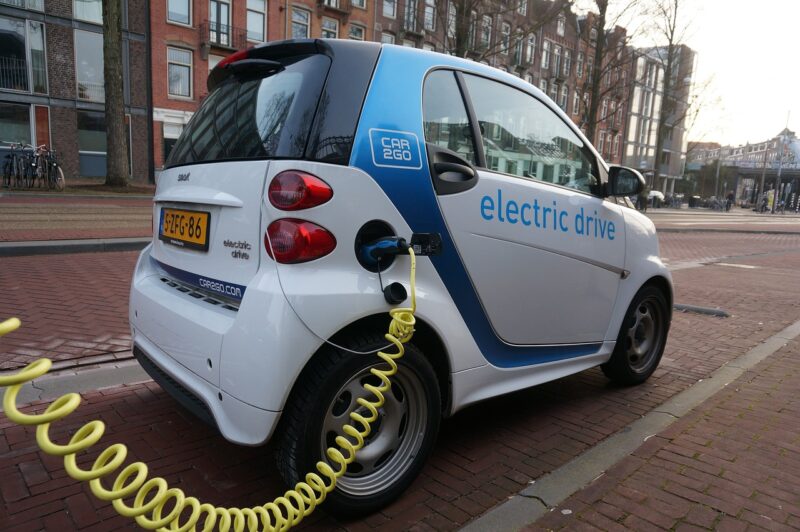Exploring the Environmental Benefits of Switching to an Electric Vehicle
November 12, 2024

As the world becomes increasingly aware of the impacts of climate change, the transportation sector is under scrutiny for its role in greenhouse gas emissions. Traditional gasoline and diesel vehicles contribute significantly to air pollution and global warming. In response, many automobile manufacturers and consumers are shifting towards electric vehicles (EVs) as a cleaner, more sustainable alternative. This article delves into the various environmental benefits of switching to an electric vehicle and explores how this transition can contribute to a healthier planet.
1. Reducing Greenhouse Gas Emissions
One of the primary environmental advantages of electric vehicles is their potential to significantly reduce greenhouse gas emissions. According to the U.S. Environmental Protection Agency (EPA), transportation accounts for about 29% of total greenhouse gas emissions in the U.S. EVs produce zero tailpipe emissions, which means that by driving an electric vehicle, you are not contributing directly to the carbon dioxide (CO2) and other harmful gases that fuel climate change.
While it’s important to consider that the overall emissions associated with EVs depend on how the electricity used to charge them is generated, studies indicate that even when powered by grid electricity, EVs tend to have a lower carbon footprint compared to conventional vehicles. Factors contributing to this include:
- Energy Efficiency: Electric motors are inherently more efficient than internal combustion engines (ICE), converting a higher percentage of energy from the grid into vehicle movement.
- Renewable Energy Integration: As more renewable energy sources (like wind and solar) are incorporated into the grid, the emissions associated with charging EVs further decrease, making them even greener over time.
- Long-term Emission Reductions: Many studies predict that widespread EV adoption could lead to a dramatic decrease in transportation emissions by 2050, aligning with global targets for reducing CO2 levels in the atmosphere.
2. Improving Air Quality
Air pollution is a significant public health crisis, leading to respiratory illnesses, cardiovascular diseases, and increased mortality rates. The combustion of fossil fuels in traditional vehicles releases pollutants such as nitrogen oxides (NOx), particulate matter (PM), and volatile organic compounds (VOCs) that contribute to smog and health issues.
Electric vehicles inherently do not emit these harmful substances, leading to improved air quality, particularly in urban areas where vehicle density is high. By transitioning to EVs:
- Reduced Smog Formation: With fewer conventional vehicles on the road, the reduction of nitrogen oxides and VOCs leads to less ground-level ozone formation – a major component of smog.
- Better Health Outcomes: Improved air quality can significantly reduce respiratory problems and other health issues linked to air pollution, benefiting vulnerable populations like children and the elderly.
- Lower Health Costs: Reduced healthcare costs associated with air-pollution-related diseases could save millions for governments and taxpayers, further incentivizing the shift to electric transportation.
3. Minimizing Noise Pollution
Electric vehicles operate much more quietly than their gas-powered counterparts. Noise pollution is an often-overlooked environmental issue that can lead to stress, sleep disturbances, and overall health problems. As urban areas continue to grow, reducing noise pollution becomes increasingly vital.
Switching to EVs contributes to quieter streets, which can positively impact:
- Urban Life Quality: A reduction in noise creates a more pleasant urban environment, improving the quality of life for residents.
- Wildlife Habitats: Lower noise levels allow wildlife to thrive in areas previously impacted by vehicle noise, promoting biodiversity and ecosystem health.
4. Conserving Energy Resources
Electric vehicles not only reduce emissions but also play a critical role in conserving non-renewable energy resources. As the world moves towards a more sustainable energy model, EVs propel advancements in clean energy technologies.
Key aspects of energy conservation associated with electric vehicles include:
- Reduced Fossil Fuel Dependency: By reducing reliance on gasoline and diesel, we can decrease the extraction and consumption of finite fossil fuels, supporting a transition to cleaner energy alternatives.
- Encouragement of Renewable Energy Development: The rise in electric vehicle adoption accelerates investments in renewable energy sources, further driving innovation and efficiency in energy production and consumption.
- Energy Storage Solutions: With the emergence of vehicle-to-grid (V2G) technology, EVs can potentially store and supply energy back to the grid, enhancing the efficiency and resilience of energy systems.
5. Reducing Environmental Impact of Resource Extraction
While the production of electric vehicles does entail resource extraction processes that can be harmful to the environment, continued developments in recycling and sustainable sourcing will mitigate these impacts. For instance:
- Battery Recycling Innovations: Advancements in battery recycling technologies help reduce the need for new raw materials and minimize waste, contributing to a circular economy.
- Responsible Sourcing Practices: Increasing demand for ethical sourcing of materials like lithium, cobalt, and nickel is prompting industries to adopt sustainable practices, reducing the environmental impact of mining and processing.
- Focus on Alternative Materials: Innovations in alternative battery materials may lessen reliance on scarce resources, leading to a more sustainable EV industry overall.
Conclusion
Switching to an electric vehicle offers undeniable environmental benefits, from reducing greenhouse gas emissions and improving air quality to minimizing noise pollution and conserving energy resources. While challenges remain – particularly concerning resource extraction and energy production – the shift toward electric mobility holds significant potential for helping us make substantial progress in the fight against climate change.
As consumers become increasingly informed about their choices, the decision to drive electric not only contributes to a cleaner environment but also lays the groundwork for a more sustainable future. By embracing electric vehicles, we can collectively take crucial steps towards protecting our planet for generations to come.






